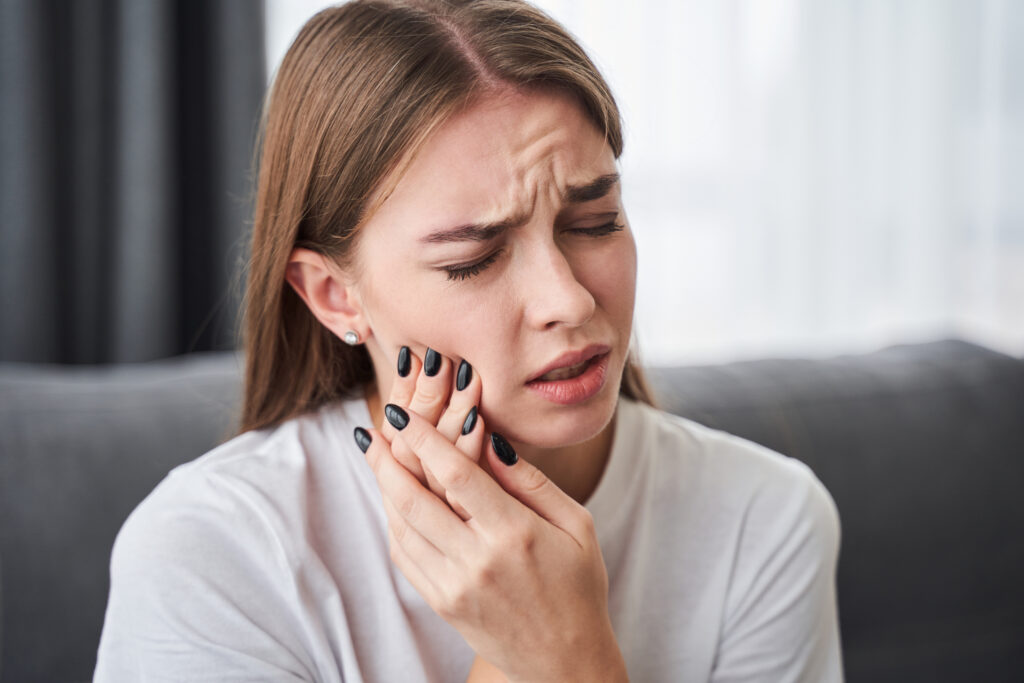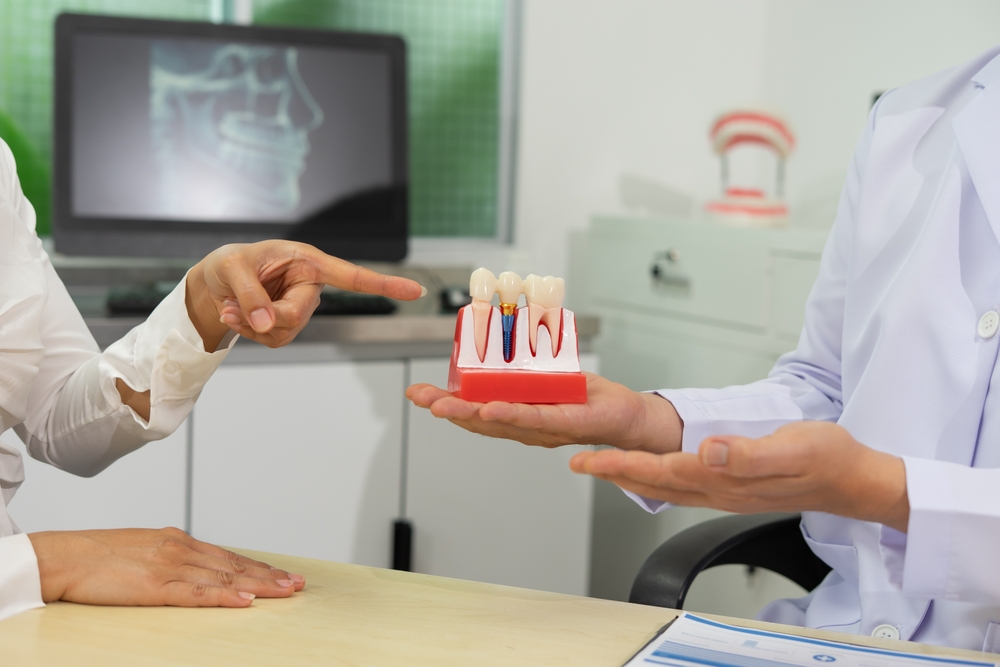Recognizing True Dental Emergencies
Not every dental discomfort requires immediate emergency care, but certain symptoms require urgent attention. Severe tooth pain that prevents you from sleeping or concentrating demands immediate professional evaluation. When a tooth gets completely knocked out, you have roughly an hour to save it with proper emergency treatment.
Significant facial swelling, especially around the jaw or cheek area, can indicate a serious infection that might spread to other parts of your body. Heavy bleeding from the mouth that won’t stop with gentle pressure also requires immediate dental intervention.
Most Common Dental Emergencies Littleton Residents Experience
Knocked-Out Teeth
Adults and children can experience tooth loss from sports injuries, falls, or accidents. Time becomes your biggest ally in these situations. If the tooth is dirty, pick it up by the crown, never the root, and gently rinse it with clean water. Try immediately placing the tooth back in its socket, or store it in cold milk while heading to our office.
Severe Toothaches
Intense dental pain often indicates infection, deep decay, or nerve damage. Rinse your mouth with warm salt water and take over-the-counter pain medication as directed on the package. Avoid placing aspirin directly on the gum, which can burn the tissue and worsen the situation.
Broken or Chipped Teeth
Sharp tooth fragments can cut your tongue and cheeks, creating additional problems. Save any broken pieces you can find and rinse your mouth with warm water. Cover sharp edges with dental wax or sugar-free gum if available, and apply a cold compress to reduce swelling.
Lost Fillings or Crowns
When fillings fall out or crowns come loose, the exposed tooth structure becomes vulnerable to further damage and bacterial infection. Temporary dental cement from the pharmacy can provide short-term protection, but professional repair should happen within 24-48 hours.
Managing Pain and Discomfort at Home
While waiting for professional treatment, several home remedies can safely help manage dental emergency pain. Cold compresses applied to the outside of your cheek for 15-20 minutes can effectively reduce swelling and numb pain. Saltwater rinses help clean the affected area and provide some antibacterial benefits.
Over-the-counter pain relievers work best when taken as directed on the packaging. Ibuprofen often provides better results for dental pain because it reduces inflammation alongside pain relief. However, avoid exceeding recommended dosages or combining different medications without consulting a healthcare provider.
When Dental Emergencies Can Wait
Some dental situations feel urgent, but can wait until regular business hours. Mild toothaches that respond well to pain medication and don’t interfere with daily activities typically don’t require emergency treatment. Small chips or rough edges that don’t cause pain can often wait a day or two for professional attention.
Lost fillings without significant pain or sensitivity can usually wait for a scheduled appointment, though you should still call our office for guidance. Food stuck between teeth, even when uncomfortable, rarely constitutes a true emergency unless it causes severe pain or swelling.
Our Emergency Dental Care Approach
Our dental emergency services focus on quickly relieving pain while addressing the underlying problem causing your discomfort. We understand that dental emergencies create anxiety, especially for children and patients with dental fears.
Our sedation dentistry options help ensure comfort throughout treatment for particularly anxious patients or complex emergency procedures. Dr. Harvey, Dr. Yoxall, Dr. Miller, and Dr. Montecinos work together to provide comprehensive emergency care that addresses immediate pain relief and long-term oral health.
Prevention Strategies That Work
Proper precautions and regular dental care can prevent many dental emergencies. Wearing mouthguards during sports protects teeth from impact injuries. Avoiding hard foods like ice cubes, popcorn kernels, and hard candies reduces the risk of tooth fractures.
Regular checkups allow our team to identify potential problems before they become emergencies. Small cavities caught early require simple fillings, while untreated decay can lead to painful infections requiring more extensive treatment.
Building Your Emergency Action Plan
Every family should have a clear plan for handling dental emergencies. Keep our office number easily accessible on your phone and know our after-hours emergency procedures. A small emergency kit with gauze, pain reliever, and temporary dental cement can help you manage situations until professional care becomes available.
Teaching children what to do if they injure their teeth during play helps them respond appropriately instead of panicking. Practice the steps for handling a knocked-out tooth so everyone knows exactly what to do in those crucial first minutes.
Need immediate help for dental emergencies in Littleton? Our experienced team at Summit Family Dentistry is prepared to help. Book your appointment online today. For convenient payment options, check out our dental plan, which makes quality dental care more affordable for your family.




